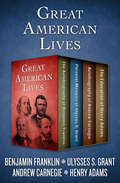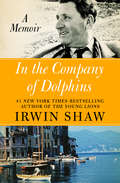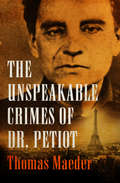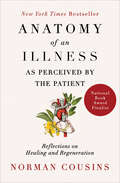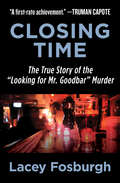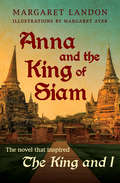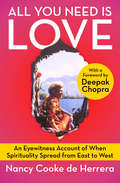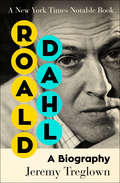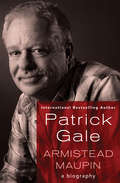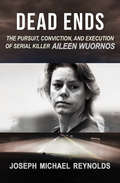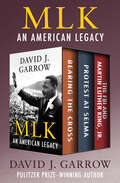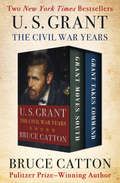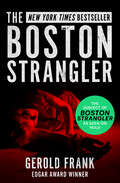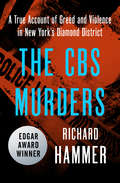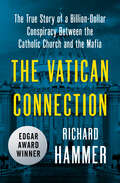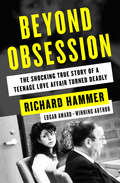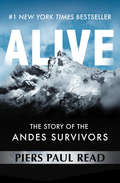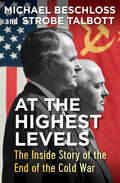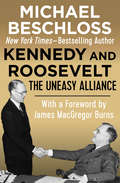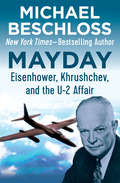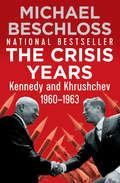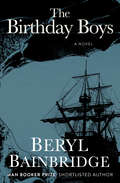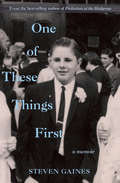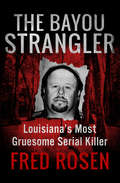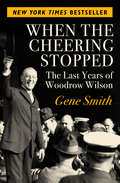- Table View
- List View
Great American Lives: The Autobiography of Benjamin Franklin, Personal Memoirs of Ulysses S. Grant, Autobiography of Andrew Carnegie, and The Education of Henry Adams
by Benjamin Franklin Henry Adams Andrew Carnegie Ulysses S GrantBrilliant, captivating, and unforgettable memoirs from four of the greatest minds in American history. Penned between 1771 and 1790 and published after his death, TheAutobiography of Benjamin Franklin is one of the most acclaimed and widely read personal histories ever written. From his youth as a printer's assistant working for his brother's Boston newspaper through his own publishing, writing, and military careers, his scientific experiments and worldwide travels, his grand triumphs and heartbreaking tragedies, Franklin tells his story with aplomb, bringing to life the flesh-and-blood man behind the American icon. Completed just days before his death, Ulysses S. Grant's Personal Memoirs is a clear and compelling account of his military career, focusing on two great conflicts: the Mexican-American War and the Civil War. Lauded for its crisp and direct prose, Grant's autobiography offers frank insight into everything from the merits of the war with Mexico to the strategies and tactics employed by Union forces against the Confederacy to the poignancy of Grant's meeting with General Lee at Appomattox Court House. Documenting a world of tariffs, insider deals, and Wall Street sharks as well as his stunning rise from bobbin boy to steel baron, The Autobiography of Andrew Carnegie opens a window into the great industrialist's decision-making process. His insights on education, business, and the necessity of giving back for the common good set an inspirational example for aspiring executives and provide a fitting testament to the power of the American dream. The Education of Henry Adams is the Pulitzer Prize-winning memoir of a brilliant man reckoning with an era of profound change. The great-grandson of President John Adams and the grandson of President John Quincy Adams, Henry Adams possessed one of the most remarkable minds of his generation. Yet he believed himself fundamentally unsuited to the era in which he lived--the tumultuous period between the Civil War and World War I. Written in third person, this uniquely unclassifiable autobiography is the Modern Library's number-one nonfiction book of the twentieth century. This ebook has been professionally proofread to ensure accuracy and readability on all devices.
In the Company of Dolphins: A Memoir
by Irwin ShawBestselling author Irwin Shaw's lighthearted travelogue follows his family's vacation sailing from St. Tropez to Venice in the 1960s. As a boy, Irwin Shaw stared out across Brooklyn's Sheepshead Bay and dreamed of owning a boat and sailing the oceans wide. Decades later, he determined that chartering a yacht was better than having no boat at all. With his wife and son, Shaw then set out to mosey about the Mediterranean, guided by a Scottish captain, his wife and daughter, and a Greek cabin boy. From St. Tropez to Naples, and across the Adriatic to Dubrovnik and up to Venice, it was the trip of a lifetime, its only fault being that, eventually, it would have to end. Written in 1964, this travel memoir is a portrait of a bygone age, when the sun-soaked Mediterranean was still emerging from the shadow of World War II and "vacation" truly meant detaching oneself from the world. Featuring cameos by legendary authors such as Françoise Sagan and James Jones, this endearing memoir is the next best thing to a Mediterranean cruise.
The Unspeakable Crimes of Dr. Petiot
by Thomas MaederThe chilling true story of a serial killer who preyed on men, women, and children desperate to escape Nazi-occupied Paris. On March 11, 1944, police were called to investigate foul-smelling smoke pouring from the chimney of an elegant private house near the Arc de Triomphe. In the basement of 21 rue Le Sueur, they made the first of many gruesome discoveries: a human hand dangling from the open door of a coal-burning stove. Proceeding to the rear of the home, detectives found rib cages, skulls, and internal organs strewn across the floor and large piles of quicklime mixed with fragments of bone and flesh. The Gestapo had two offices in the neighborhood--were Hitler's henchmen responsible for the carnage? Or was it the work of French Resistance fighters purging Paris of traitors and German spies? As the investigation unfolded, a more sinister possibility emerged. The building's owner, Dr. Marcel Petiot, was a handsome and charismatic physician whose past was littered with bizarre behavior and criminal activity. When he was finally captured eight months later, Dr. Petiot claimed he was a loyal member of the Resistance who helped kill Nazi collaborators. Prosecutors charged that he was a sadistic mass murderer who lured at least twenty-seven innocent people to their deaths with promises of escape. Estimates of the actual number of his victims ran as high as 150 men, women, and children. From the first stages of the investigation to the sensational trial in which Dr. Petiot's superior intelligence and perverse wit were on full display, author Thomas Maeder meticulously reconstructs one of the twentieth century's most fascinating and lurid murder cases. Drawing on classified police files and interviews with surviving participants, The Unspeakable Crimes of Dr. Petiot is a riveting true crime saga that that "reads like a shocking psychological thriller" (Newsweek).
Anatomy of an Illness as Perceived by the Patient: Reflections on Healing and Regeneration
by Norman CousinsThe power of laughter triumphs over illness in Norman Cousins's bestselling classic memoir that revolutionized medicine. Norman Cousins's iconic firsthand account of victory against terminal disease, Anatomy of an Illness as Perceived by the Patient inspired a revolution, encouraging patients to take charge of their own treatment. A political journalist and activist, Cousins was also a professor of medical humanities at UCLA, where he studied the biochemistry of human emotions and their relationship to healing. When Cousins was hospitalized with a debilitating collagen illness, he decided to take his health into his own hands. Cousins and his doctor combated the disease together by creating a regimen of laughter and vitamin C specifically calibrated to his needs. Against all odds, the treatment worked, proving to Cousins that a positive attitude was key to his improvement. Years later, Cousins set pen to paper to tell the story of his recovery. In this humorous and insightful account, Cousins analyzes his own journey in relation to holistic medicine and discusses the astounding power of mind over body. The result is an inspirational and educational guide to health that continues to offer hope to many. This ebook features an extended biography of Norman Cousins by his daughter, Sarah Cousins Shapiro.
Closing Time: The True Story of the "Looking for Mr. Goodbar" Murder
by Lacey FosburghThe chilling true story of the Manhattan schoolteacher's murder that would become one of the most sensationalized crimes of the century. Fact and fiction collide in this true crime retelling of the homicide of Roseann Quinn, an Irish-Catholic schoolteacher murdered in New York City after being picked up at an Upper West Side bar during the sexual revolution. Fictionalized in Judith Rossner's novel Looking for Mr. Goodbar and adapted into the 1977 film of the same name, starring Diane Keaton, Richard Gere, and Tom Berenger, the murder of Roseann Quinn enthralled the nation while New York's Finest tracked leads and dead ends in search of the elusive Goodbar Killer. A beloved and dedicated Catholic schoolteacher at St. Joseph's School for the Deaf in the Bronx, Roseanne Quinn was a well-educated and progressive feminist who taught school by day but often took men home at night. Known to read quietly by herself in bars and to keep a diverse and engaging social circle, Quinn's life was snuffed out when she met a stranger in a neighborhood bar and invited him back to her apartment. After smoking and talking, the pair decided to have sex, which turned deadly when Quinn's guest became enraged after a series of sexual dysfunctions. Closing Time dramatizes the events leading up to Quinn's murder while covering the gritty details that would ultimately lead to the killer's capture. Closing Time's genre-bending meld of nonfiction and fiction set the tone for many true crime stories to follow. It was nominated for the Edgar Award for Best Fact Crime and is a must-read for both fans of true crime and anyone interested in the sexual and cultural climate of 1970s New York City.
Anna and the King of Siam: The Book That Inspired The Musical And Film The King And I
by Margaret Landon Margaret AyerBased on the incredible true story of one woman's journey to the exotic world of nineteenth-century Siam, the riveting novel that inspired The King and I. In 1862, recently widowed and with two small children to support, British schoolteacher Anna Leonowens agrees to serve as governess to the children of King Mongkut of Siam (present-day Thailand), unaware that her years in the royal palace will change not only her own life, but also the future of a nation. Her relationship with King Mongkut, famously portrayed by Yul Brynner in the classic film The King and I, is complicated from the start, pitting two headstrong personalities against each other: While the king favors tradition, Anna embraces change. As governess, Anna often finds herself at cross-purposes, marveling at the foreign customs, fascinating people, and striking landscape of the kingdom and its harems, while simultaneously trying to influence her pupils--especially young Prince Chulalongkorn--with her Western ideals and values. Years later, as king, this very influence leads Chulalongkorn to abolish slavery in Siam and introduce democratic reform based on the ideas of freedom and human dignity he first learned from his beloved tutor. This captivating novel brilliantly combines in-depth research--author Margaret Landon drew from Siamese court records and Anna's own writings--with richly imagined details to create a lush portrait of 1860s Siam. As a Rodgers & Hammerstein Broadway musical and an Academy Award-winning film, the story of Anna and the King of Siam has enchanted millions over the years. It is a gripping tale of cultural differences and shared humanity that invites readers into a vivid and sensory world populated by unforgettable characters.
All You Need Is Love: An Eyewitness Account of When Spirituality Spread from East to West
by Nancy Cooke de HerreraWritten decades before Eat, Pray, Love, this inspiring memoir details one woman's incredible journey through India to bring Eastern spirituality to the Western world. Even before she arrived at the ashram of Maharishi Mahesh Yogi, founder of Transcendental Meditation, in Rishikesh, India, a city at the foothills of the Himalayas along the banks of the Ganges River, in 1962, Nancy Cooke de Herrera lived a lifetime of adventure. During the 1950s, she traveled the globe as a goodwill ambassador of the US State Department, giving lectures on American fashion, culture, and customs. But when her beloved husband, Luis, died, de Herrera sought a life of greater meaning. The Maharishi became her guru, mentor, and friend, and in return she served as his publicist, spreading his message of peace and love wherever she went. In this remarkable autobiography, with a foreword by Deepak Chopra, de Herrera recounts not only her international escapades but also her inner journey to spiritual enlightenment. Trained by the Maharishi, she returned home and taught meditation to troubled youth, HIV/AIDS patients, and celebrities such as Madonna, Sheryl Crow, and Greta Garbo. Her publicity efforts led to the explosion of interest in meditation, yoga, and Eastern spirituality in America. Rich in endearing anecdotes about life at the ashram with famous visitors, including the Beatles, Mia Farrow, and Mike Love, and pieces of timeless wisdom, All You Need Is Love reveals a life lived with compassion, open-mindedness, and the belief that one person can change the world.
Roald Dahl: A Biography
by Jeremy TreglownA New York Times Notable Book: A revealing look at the famous twentieth-century children's author who brought us The BFG and Charlie and the Chocolate Factory. Few writers have had the enduring cultural influence of Roald Dahl, who inspired generations of loyal readers. Acclaimed biographer Jeremy Treglown cuts no corners in humanizing this longstanding immortal of juvenile fiction. Roald Dahl explores this master of children's literature from childhood--focusing a tight lens on the relationship between Dahl and his mother, who lovingly referred to him as "Apple"--through to his death. Treglown deftly navigates Dahl's time as a fighter pilot in the Royal Air Force, exploring how the experience transformed many of the beliefs that influenced the English writer's work, including The Gremlins, which was commissioned by Walt Disney. A former editor of the Times Literary Supplement, Treglown discusses many of Dahl's most famous works, such as James and the Giant Peach and Fantastic Mr. Fox, while also delving into his marriage to actress Patricia Neal, combing through letters and archives to show a man who could be both comic and vitriolic, thoughtful yet manipulative and irascible. Treglown highlights many of Dahl's literary achievements as well as his breakdowns and shortcomings, presenting a very personal and telling picture of the author and the inner turmoil that crippled him. Separating the man from the myth, Treglown's frank, intimate portrait of Dahl illuminates the contradictions within the mind of this beloved author, a man who could be both a monster and a hero. It is required reading for book lovers and film buffs alike.
Armistead Maupin (Outlines Ser.)
by Patrick GaleAn intimate biography of the gay icon whose Tales of the City novels changed America's understanding of LGBT culture during the 1970s and AIDS-afflicted 1980s. Step into Armistead Maupin's house, and you will be greeted by a strapping young gardener, a wave of marijuana smoke, and the most gracious host in the world. When he isn't flitting from protests to orgies, Maupin is a natural storyteller, and San Francisco is his favorite subject. Pull up a chair and prepare to be swept away on a wave of wit, gossip, and the most outrageous sexual anecdotes you've ever heard. His house seems like a scene out of his legendary Tales of the City, and that's no accident: Every moment of his groundbreaking series was drawn, one way or another, from Maupin's remarkable life, from a middle-class upbringing in North Carolina to a stint in the navy during Vietnam. Maupin landed in San Francisco just in time to chronicle the gay rights revolution that was sweeping the city and the country as a whole, and from the moment his Tales were first serialized, that city was never the same. This is an intimate biography, written by Maupin's longtime friend, Patrick Gale. From his fling with Rock Hudson to the darkest days of the AIDS crisis, Maupin saw it all--and lived to tell the tale.
Dead Ends: The Pursuit, Conviction, and Execution of Serial Killer Aileen Wuornos
by Joseph Michael ReynoldsThe chilling true story of female serial killer Aileen Wuornos, whose violent crimes shocked the nation--and inspired the Academy Award-winning film Monster. When police in Florida's Volusia County were called to investigate the murder of Richard Mallory, whose gunshot-ridden body had been found in the woods just north of Daytona Beach in December 1989, their search led them to a string of dead ends before the trail went cold six months later. During the spring and summer of 1990, the bodies of six more middle-aged white men were discovered--all in secluded areas near their abandoned vehicles, all but one shot dead with a .22 caliber pistol--and all without any suspects, motives, or leads. The police speculated that the murders were connected, but they never anticipated what they'd soon discover: The killings were the work of a single culprit, Aileen Wuornos, one of the first women to ever fit the profile of a serial killer. With the cooperation of her former lover and accomplice, Tyria Moore, the police were able to solicit a confession from Wuornos about her months-long killing spree along Florida's interstate highways. The nation was quickly swept up in the drama of her trial and the media dubbed her the "Damsel of Death" as horrifying details of her past as a prostitute and drifter emerged. Written by the Reuters reporter who initially broke the story, Dead Ends is a thrilling firsthand account of Wuornos's capture, trial, and ultimate sentencing to death by lethal injection, that goes beyond the media frenzy to reveal the even more disturbing truth.
MLK: Bearing the Cross, Protest at Selma, and The FBI and Martin Luther King, Jr.
by David J. GarrowThese three insightful works--including Pulitzer Prize winner Bearing the Cross--span the remarkable life and legacy of Dr. Martin Luther King Jr. This collection from professor and historian David J. Garrow provides a multidimensional and fascinating portrait of Martin Luther King Jr., and his lifelong mission to upend prejudices deeply entrenched in society and enact legal change that would achieve equality for African Americans one hundred years after their emancipation from slavery. Bearing the Cross traces King's evolution from the young pastor who spearheaded the 1955-56 bus boycott in Montgomery, Alabama, to the inspirational leader of America's civil rights movement, focusing on his crucial role at the Southern Christian Leadership Conference. Garrow captures King's charisma, his moral obligation to lead a nonviolent crusade against racism and inequality--and the toll this calling took on his life. Garrow delves deeper into one of the civil rights movement's most decisive moments in Protest at Selma. The Selma demonstrations led to the landmark Voting Rights Act of 1965, which, along with the Civil Rights Act of 1964, remains a key aspect of King's institutional legacy. Garrow analyzes King's political strategy and understanding of how media coverage--especially reports of white violence against peaceful African American protestors--elicited sympathy for the cause. King's fierce determination to overturn the status quo of racial relations antagonized FBI director J. Edgar Hoover. The FBI and Martin Luther King, Jr. follows Hoover's personal obsession to destroy the civil rights leader. In an unprecedented abuse of governmental power, Hoover led one of the most invasive surveillance operations in American history, desperately trying to mar King's image. This meticulously researched and utterly engrossing collection is a key to understanding King's inner life, his public persona, and his legacy, and is a testament to his impact in forcing America to confront intolerance and bigotry at a critical time in the nation's history.
U. S. Grant: Grant Moves South and Grant Takes Command
by Bruce CattonPulitzer Prize-winning historian Bruce Catton's acclaimed two-book biography of complex and controversial Union commander Ulysses S. Grant. In these two comprehensive and engaging volumes, preeminent Civil War historian Bruce Catton follows the wartime movements of Ulysses S. Grant, detailing the Union commander's bold tactics and his relentless dedication to achieving the North's victory in the nation's bloodiest conflict. While a succession of Union generals were losing battles and sacrificing troops due to ego, egregious errors, and incompetence in the early years of the war, an unassuming Federal army colonel was excelling in the Western theater of operations. Grant Moves South details how Grant, as commander of the Twenty-First Illinois Volunteer Infantry, though unskilled in military power politics and disregarded by his peers, was proving to be an unstoppable force. He won victory after victory at Belmont, Fort Henry, and Fort Donelson, while sagaciously avoiding near-catastrophe and ultimately triumphing at Shiloh. His decisive victory at Vicksburg would cost the Confederacy its invaluable lifeline: the Mississippi River. Grant Takes Command picks up in the summer of 1863 when President Abraham Lincoln promoted Grant to the head of the Army of the Potomac, placing nothing less than the future of an entire nation in the hands of the military leader. Grant's acute strategic thinking and unshakeable tenacity led to the crushing defeat of the Confederacy in the Overland Campaign in Virginia and the Siege of Petersburg. In the spring of 1865, Grant finally forced Robert E. Lee's surrender at Appomattox Court House, ending the brutal conflict. Although tragedy struck only days later when Lincoln was assassinated, Grant's triumphs on the battlefield ensured that the president's principles of unity and freedom would endure. Based in large part on military communiqués, personal eyewitness accounts, and Grant's own writings, this engrossing two-part biography offers readers an in-depth portrait of the extraordinary warrior and unparalleled strategist whose battlefield brilliance clinched the downfall of the Confederacy in the Civil War.
The Boston Strangler
by Gerold FrankNew York Times Bestseller and Winner of the Edgar Award: The definitive true crime account of Boston's most notorious serial killer--and the exhaustive manhunt that ensued in the wake of his rampage. On June 14, 1962, twenty-five-year-old Juris Slesers arrived at his mother's apartment to drive her to church. But there was no answer at the door. After waiting a half hour, Juris shoved his way inside. He found fifty-five-year-old Anna Slesers lying on the kitchen floor, dead, the cord of her housecoat knotted tightly around her neck and turned up in a bow. Between 1962 and 1964, twelve more bodies were discovered in and around Boston: all women, all sexually assaulted, and all strangled--often with their own pantyhose. None of the victims exhibited any signs of struggle, nothing was stolen from their homes, and there were no signs of forcible entry. The police could find no discernable motive or clues. Who was this insane killer? How was he entering women's homes? And why were they letting him in? More than a gripping chronicle of an American serial killer on par with Jack the Ripper, The Boston Strangler is a shocking story about what happens to a city under a siege of terror. Drawn from hundreds of hours of personal interviews, as well as police, medical, and court documentation, author Gerold Frank's grisly, horrifying, and meticulously researched account was awarded the Edgar for Best Fact Crime.
The CBS Murders: A True Account of Greed and Violence in New York's Diamond District
by Richard HammerWinner of the Edgar Award: The gripping account of a gruesome mass murder in gritty 1980s New York and the relentless hunt for a coldblooded killer. On a warm spring evening in 1982, thirty-seven-year-old accountant Margaret Barbera left work in New York City and walked to the West Side parking lot where she kept her BMW. Finding the lock on the driver's side door jammed, she went to the passenger's side and inserted her key. A man leaned through the open window of a van parked in the next spot, pressed a silenced pistol to the back of Margaret's head, and fired. She was dead before she hit the pavement. It was a professional hit, meticulously planned--but the killer didn't expect three employees of the nearby CBS television studios to stumble onto the scene of the crime. "You didn't see nothin', did you?" he demanded, before shooting the first eyewitness in the head. After chasing down and executing the other two men, the murderer sped out of the parking lot with Margaret's lifeless body in the back of his van. Thirty minutes later, the first detectives arrived on the scene. Veterans of Midtown North, a sprawling precinct stretching from the exclusive shops of Fifth Avenue to the flophouses of Hell's Kitchen, they thought they'd seen it all. But a bloodbath in the heart of Manhattan was a shocking new level of depravity, and the investigation would unfold under intense media coverage. Setting out on the trail of an assassin, the NYPD uncovered one of the most diabolical criminal conspiracies in the city's history. Richard Hammer's blow-by-blow account of "the CBS Murders" is a thrilling tale of greed, violence, and betrayal, and a fascinating portrait of how a big-city police department solved the toughest of cases.
The Vatican Connection: The True Story of a Billion-Dollar Conspiracy Between the Catholic Church and the Mafia
by Richard HammerWinner of the Edgar Award: The riveting account of an audacious fraud scheme that stretched from a Mafia hangout on the Lower East Side to the Vatican. With a round, open face and a penchant for tall tales, Matteo de Lorenzo resembled everyone's kindly uncle. But Uncle Marty, as he was known throughout the Genovese crime family, was one of the New York mob's top earners throughout the 1960s and '70s, the mastermind of a billion-dollar trade in stolen and counterfeit securities. In the spring of 1972, de Lorenzo and his shrewd and ruthless business partner, Vincent Rizzo, traveled to Europe to discuss a plan to launder millions of dollars worth of phony securities. Shockingly, the plot involved Archbishop Paul Marcinkus, the scandal-plagued president of the Vatican Bank. Unbeknownst to de Lorenzo and Rizzo, however, the NYPD was already on the case--thanks to the crusading work of Det. Joseph Coffey. Coffey, the legendary New York policeman who investigated the Lufthansa heist and took the Son of Sam's confession, first learned of the scheme in a wiretap related to the attempted mob takeover of the Playboy Club in Manhattan. From those unlikely beginnings, Detective Coffey worked tirelessly to trace the fraudulent stocks and bonds around the world and deep into the corridors of power in Washington, DC, and Rome. Meticulously researched and relentlessly gripping, The Vatican Connection is a true story of corruption and deceit, packed with "all the ingredients of a thriller" (San Francisco Chronicle).
Beyond Obsession: The Shocking True Story of a Teenage Love Affair Turned Deadly
by Richard HammerThe chilling true story of a beautiful violin prodigy, her devoted boyfriend, and the devastating family secrets that led to a brutal murder. Joyce Aparo seemed to be the perfect single mother. She doted on her sixteen-year-old daughter, Karin, encouraging her musical ability and lavishing affection on her. But behind closed doors, Joyce was a terror. For thirteen years, she beat Karin savagely, kept her away from other children, and demeaned her relentlessly. When Karin met the troubled yet brilliant Dennis Coleman, the two fell head-over-heels into lustful infatuation. But Joyce disapproved—so she had to die. On August 5, 1987, Joyce&’s body was found under a bridge near the Connecticut–Massachusetts border. She had been strangled, and was covered in bruises, with paper stuffed in her mouth and pantyhose knotted around her throat. The police investigation soon dragged her horrific treatment of Karin into the open, and the teenage lovers became the prime suspects. Dennis eventually confessed to the murder, testifying that Karin begged him to kill her mother. But Karin had a very different story to tell, claiming to have no knowledge of Dennis&’s plans. Was she manipulating the police the same way she manipulated her former boyfriend, or was she an innocent victim? Based on meticulous research, court transcripts, and interviews with the survivors, Beyond Obsession is the definitive account of an American tragedy and the basis for a popular TV movie starring Victoria Principal and Emily Warfield.
Alive: The Story of the Andes Survivors (P. S. Series)
by Piers Paul ReadThe #1 New York Times bestseller and the true story behind the film: A rugby team resorts to the unthinkable after a plane crash in the Andes <P><P>. Spirits were high when the Fairchild F-227 took off from Mendoza, Argentina, and headed for Santiago, Chile. On board were forty-five people, including an amateur rugby team from Uruguay and their friends and family. <P><P>The skies were clear that Friday, October 13, 1972, and at 3:30 p.m., the Fairchild's pilot reported their altitude at 15,000 feet. But one minute later, the Santiago control tower lost all contact with the aircraft. For eight days, Chileans, Uruguayans, and Argentinians searched for it, but snowfall in the Andes had been heavy, and the odds of locating any wreckage were slim. <P><P>Ten weeks later, a Chilean peasant in a remote valley noticed two haggard men desperately gesticulating to him from across a river. He threw them a pen and paper, and the note they tossed back read: "I come from a plane that fell in the mountains . . ." <P><P>Sixteen of the original forty-five passengers on the F-227 survived its horrific crash. In the remote glacial wilderness, they camped in the plane's fuselage, where they faced freezing temperatures, life-threatening injuries, an avalanche, and imminent starvation. As their meager food supplies ran out, and after they heard on a patched-together radio that the search parties had been called off, it seemed like all hope was lost. <P><P>To save their own lives, these men and women not only had to keep their faith, they had to make an impossible decision: Should they eat the flesh of their dead friends? <P><P>A remarkable story of endurance and determination, friendship and the human spirit, Alive is the dramatic bestselling account of one of the most harrowing quests for survival in modern times.
At the Highest Levels: The Inside Story of the End of the Cold War
by Michael Beschloss Strobe TalbottThe riveting behind-the-scenes account of the Cold War's endgame and the secret negotiations that changed world history. When US President George Bush met with Soviet Premier Mikhail Gorbachev in December 1989, the Berlin Wall had fallen and the twin policies of perestroika and glasnost were bringing new freedoms to millions of people across the Eastern Bloc. But the peaceful end of the Cold War was far from assured. It would require the leaders of rival superpowers to develop a partnership strong enough to look beyond the deep-seeded animosities of the past and embrace an uncertain future. At the Highest Levels is the fascinating story of that unlikely partnership and the role Bush, Gorbachev, and their closest advisers, including Secretary of State James Baker and Minister of Foreign Affairs Eduard Shevardnadze, played in the liberation of Eastern Europe, the disbanding of the Warsaw Pact, the suspension of the Soviet Communist Party, and the dissolution of the USSR. Granted extraordinary access during the crucial period from 1989 through 1991, coauthors Michael Beschloss and Strobe Talbott reveal the private conversations and closed-door meetings at the Kremlin, White House, Pentagon, CIA, and KGB that negotiated an end to the nuclear arms race and decades of proxy wars. We also see the human cost of high-stakes international diplomacy as Bush and Gorbachev, while growing closely attuned to each other, fall out of touch with their domestic constituencies and lose their jobs to Bill Clinton and Boris Yeltsin. Hailed by the New York Times as "intimate and utterly absorbing," At the Highest Levels is a spellbinding, almost hour-by-hour account of one of the most momentous historical changes in modern history.
Kennedy and Roosevelt: The Uneasy Alliance
by Michael Beschloss James Macgregor BurnsThe tempestuous relationship between a towering American president and the founder of an American political dynasty--and its impact on history. When Franklin Roosevelt ran for president in 1932, he won support from the little-known, Boston-born financier and ex-Hollywood mogul Joseph Kennedy. The politician and the businessman formed a partnership that helped to bring Roosevelt to the White House, where he fought the Great Depression and institutionalized the New Deal. But the mutual admiration born of Roosevelt and Kennedy's shared victories, including the latter's stint as the first chairman of the Securities and Exchange Commission, where he worked to clean up Wall Street, was severely tested as Nazism rolled across Europe. Eager to protect the lives of his four sons and to see that his family would retain the wealth and social status he had fought so hard to achieve, Kennedy desperately wanted America to stay out of World War II. As Roosevelt's ambassador to Great Britain, he enthusiastically supported the British Prime Minister Neville Chamberlain's policy of appeasing Adolf Hitler. By 1940, his isolationism forced an angry showdown with his boss at the Roosevelt mansion at Hyde Park. "I never want to see that son of a bitch again as long as I live," the president told his wife, Eleanor. After America entered World War II, Kennedy retreated from the spotlight and turned to the political ambitions of his sons. By 1960, when Franklin Roosevelt Jr. campaigned for John F. Kennedy to win the presidency, the complex relationship between their two families had come full circle. To tell this story, bestselling author Michael Beschloss has drawn on crucial sources that had never been seen by other historians, such as Joseph Kennedy's private diaries and his unpublished diplomatic memoir. Beschloss also interviewed a number of Roosevelt's White House aides, as well as three of the president's sons. Kennedy and Roosevelt was Beschloss's first book, and has been hailed by the New York Times Book Review as a "fascinating" account of "the complex, ambiguous relationship of two shrewd, ruthless, power-hungry men."
Mayday: Eisenhower, Khrushchev, and the U-2 Affair
by Michael BeschlossThe "definitive" book on the U-2 episode and its disastrous impact on the future of the Cold War (Kirkus Reviews). On May Day 1960, Soviet forces downed a CIA spy plane flown deep into Soviet territory by Francis Gary Powers two weeks before a crucial summit. This forced President Dwight Eisenhower to decide whether, in an effort to save the meeting, to admit to Soviet Premier Nikita Khrushchev--and the world--that he had secretly ordered Powers's flight, or to claim that the CIA could take such a significant step without his approval. In rich and fascinating detail, Mayday explores the years of U-2 flights, which Eisenhower deemed "an act of war," the US government's misconceived attempt to cover up the true purpose of the flight, Khrushchev's dramatic revelation that Powers was alive and in Soviet custody, and the show trial that sentenced the pilot to prison and hard labor. From a U-2's cramped cockpit to tense meetings in the Oval Office, the Kremlin, Camp David, CIA headquarters, the Élysée Palace, and Number Ten Downing Street, historian Michael Beschloss draws on previously unavailable CIA documents, diaries, and letters, as well as the recollections of Eisenhower's aides, to reveal the full high-stakes drama and bring to life its key figures, which also include Richard Nixon, Allen Dulles, and Charles de Gaulle. An impressive work of scholarship with the dramatic pacing a spy thriller, Mayday "may be one of the best stories yet written about just how those grand men of diplomacy and intrigue conducted our business" (Time).
The Crisis Years: Kennedy and Khrushchev, 1960–1963
by Michael BeschlossThe groundbreaking and revelatory tale of the most dangerous years of the Cold War and the two leaders who held the fate of the world in their hands. This bestselling history takes us into the tumultuous period from 1960 through 1963 when the Berlin Wall was built and the Bay of Pigs invasion and the Cuban Missile Crisis brought the United States and Soviet Union to the abyss. In this compelling narrative, author Michael Beschloss, praised by Newsweek as "the nation's leading Presidential historian," draws on declassified American documents and interviews with Kennedy aides and Soviet sources to reveal the inner workings of the CIA, Pentagon, White House, KGB, and politburo, and show us the complex private relationship between President John F. Kennedy and Soviet Premier Nikita Khrushchev. Beschloss discards previous myths to show how the miscalculations and conflicting ambitions of those leaders caused a nuclear confrontation that could have killed tens of millions of people. Among the cast of characters are Robert Kennedy, Robert McNamara, Adlai Stevenson, Fidel Castro, Willy Brandt, Leonid Brezhnev, and Andrei Gromyko. The Bay of Pigs invasion, the Vienna Summit, the Berlin Crisis, and what followed are rendered with urgency and intimacy as the author puts these dangerous years in the context of world history. "Impressively researched and engrossingly narrated" (Los Angeles Times), The Crisis Years brings to vivid life a crucial epoch in a book that David Remnick of the New Yorker has called the "definitive" history of John F. Kennedy and the Cold War.
The Birthday Boys: A Novel (Sound Ser.)
by Beryl BainbridgeThe dramatic, fictionalized account of Robert Falcon Scott's famed and fatal expedition to Antarctica by one of Britain's best-loved authors. Departing from Cardiff in 1910, the Terra Nova entered dark waters and headed south. On board were Petty Officer Edgar "Taff" Evans, Dr. Edward "Uncle Bill" Wilson, Capt. Robert Falcon "Con" Scott, Lt. Henry Robertson "Birdie" Bowers, and Capt. Lawrence Edward "Titus" Oates. Through an imaginative yet historically accurate retelling of the crew's mission to become the first explorers to reach the South Pole--and with each of the book's five chapters narrated from the unique perspective of one of these men--author Beryl Bainbridge imbues a tragic and thrilling adventure story with profound psychological, metaphysical, and emotional insight. The first three chapters of The Birthday Boys--recounted by Evans, Wilson, and Scott, respectively--tell of the preparations and fundraising required for the journey, two stopovers in Madeira and South Trinidad Island, and the difficult conditions the expedition faces when they land on Antarctica. It is Wilson who first fears for the safety of the crew, when from atop the ship's crow's-nest he spies a fantastical half-man-half-bird creature flying above the sea. The doctor is certain this apparition is a harbinger of death. Troubles then ensue when Scott sets up a base camp at Cape Evans as well as several depots in the direction of the South Pole. The motor sledge breaks down almost immediately, several ponies are lost to the harsh elements, and it is revealed that a competing polar expedition led by Norwegian explorer Roald Amundsen is already well ahead of Scott's team. In the final two chapters--told by Bowers and Oates--readers are taken on a dangerous but spectacular detour to a penguin rookery, where the men witness gorgeous auroras, build an igloo, gather eggs, and slaughter the arctic birds for their blubber. When a violent blizzard hits, it looks as if no one will make it out alive. But brotherly love in the face of all odds gives the men the power to survive, and the five heroes set off on their final march to the South Pole. Though history has already revealed the catastrophic end of this tale, Bainbridge shows us the bravery, courage, and humanity essential to the adventure. Masterfully blurring the boundaries between fact and fiction, The Birthday Boys is a compelling historical biography that challenges readers to discover truths that can only be reached through the imagination. This ebook features an illustrated biography of Beryl Bainbridge including rare images from the author's estate.
One of These Things First: A Memoir
by Steven GainesFrom New York Times-bestselling author Steven Gaines comes a wry and touching memoir of his trials as a gay teen at the famed Payne Whitney Psychiatric Clinic.One of These Things First is a poignant reminiscence of a fifteen-year-old gay Jewish boy's unexpected trajectory from a life behind a rack of dresses in his grandmother's Brooklyn bra-and-girdle store to Manhattan's infamous Payne Whitney Psychiatric Clinic, whose alumni includes writers, poets, and madmen, as well as Marilyn Monroe and bestselling author Steven Gaines. With a gimlet eye and a true gift for storytelling, Gaines captures his childhood shtetl in Brooklyn, and all its drama and secrets, like an Edward Hopper tableau: his philandering grandfather with his fleet of Cadillacs and Corvettes; a giant, empty movie theater, his portal to the outside world; a shirtless teenage boy pushing a lawnmower; and a pair of tormenting bullies whose taunts drive Gaines to a suicide attempt. Gaines also takes the reader behind the walls of Payne Whitney--the "Harvard of psychiatric clinics," as Time magazine called it--populated by a captivating group of neurasthenics who affect his life in unexpected ways. The cast of characters includes a famous Broadway producer who becomes his unlikely mentor; an elegant woman who claims to be the ex-mistress of newly elected president John F. Kennedy; a snooty, suicidal architect; and a seductive young contessa. At the center of the story is a brilliant young psychiatrist who promises to cure a young boy of his homosexuality and give him the normalcy he so longs for. For readers who love stories of self-transformation, One of These Things First is a fascinating memoir in the vain of Susanna Kaysen's Girl, Interrupted and Augusten Burroughs's Running with Scissors. With its novelistic texture and unflagging narrative, this book is destined to become one of the great, indelible works of the memoir genre.
The Bayou Strangler: Louisiana’s Most Gruesome Serial Killer
by Fred RosenThe true story of Louisiana serial killer Ronald Dominique’s ten-year murder spree, the men he slayed, and the detectives who hunted him down. In 1997, the bodies of young African American men began turning up in the cane fields of the quiet suburbs of New Orleans. The victims—many of them transient street hustlers—had been brutally raped and strangled, but police had no leads on the killer’s identity. The murders continued, leaving southeast Louisiana’s gay community rattled and authorities desperate for a break in the case. Then, Detectives Dennis Thornton and Dawn Bergeron came together as task force partners, indefatigable in their decade-long effort to track down the killer. In 2006, DNA evidence finally linked the murders to a suspect: the unassuming Ronald Joseph Dominique, who had lived under the radar for years, working as a pizza deliveryman and meter reader. But who was Ronald Dominique and what led him to commit such heinous crimes? With direct access to the investigation, Dominique’s confession, and all of the killer’s body dump sites in throughout the state, author Fred Rosen enters the warped mind of a murderer and captures a troubled, disturbing, and broken life. As with the many other serial killers he has covered, including Jeffrey Dahmer (the Milwaukee Cannibal) and Dennis Rader (the BTK Killer), Rosen provides a horrifying and fascinating account of the lengths to which a bloodthirsty monster will go to lure and brutalize his victims.
When the Cheering Stopped: The Last Years of Woodrow Wilson
by Gene SmithThe poignant true story of an American president struck by tragedy at the height of his glory. This New York Times bestseller vividly chronicles the stunning decline in Woodrow Wilson's fortunes after World War I and draws back the curtain on one of the strangest episodes in the history of the American presidency. Author Gene Smith brilliantly captures the drama and excitement of Wilson's efforts at the Paris Peace Conference to forge a lasting concord between enemies, and his remarkable coast-to-coast tour to sway national opinion in favor of the League of Nations. During this grueling jaunt across 8,000 miles in less than a month, Wilson suffered a debilitating stroke that left him an invalid and a recluse, shrouding his final years in office in shadow and mystery. In graceful and dramatic prose, Smith portrays a White House mired in secrets, with a commander in chief kept behind closed doors, unseen by anyone except his doctor and his devoted second wife, Edith Galt Wilson, a woman of strong will with less than an elementary school education who, for all intents and purposes, led the government of the most powerful nation in the world for two years. When the Cheering Stopped is a gripping true story of duty, courage, and deceit, and an unforgettable portrait of a visionary leader whose valiant struggle and tragic fall changed the course of world history.
